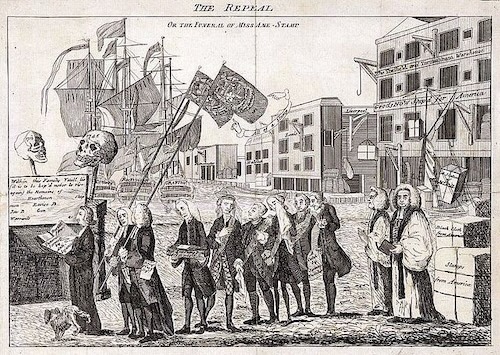The British government was shocked by the strength of colonial resistance to new taxes and laws. Parliament had expected the colonies to obey the Stamp Act and Townshend Acts without question. Instead, colonial protests created a major crisis that forced Britain to respond in multiple ways.
At first, British leaders ignored the petitions sent by colonial assemblies. They saw these formal complaints as minor annoyances and refused to change their policies. However, when colonies began organizing and sharing their protests, as they did with the Massachusetts Circular Letter, Parliament saw this as a serious threat. They ordered the Massachusetts Assembly to cancel the letter. The assembly refused, so Britain broke apart the entire legislature to stop the colonies from cooperating.
The British government also reacted by sending more troops to enforce order. In cities like Boston, soldiers were stationed to prevent unrest and intimidate colonists. This military presence only increased tensions and led to more public anger against British authority.
Britain faced growing pressure from its own merchants. British businesses suffered financial losses as colonial boycotts of British goods spread. Goods remained unsold. Trade profits fell. British merchants were worried about their businesses, so they urged Parliament to change the laws.

Parliament responded by repealing some of the taxes. The Stamp Act was removed in 1766. Most of the Townshend Duties were repealed in 1770. But British leaders still wanted to show they were in control, so Parliament passed the Declaratory Act. The act claimed Britain’s full authority to make laws for the colonies. It left the tax on tea as a symbol of its power.
Britain’s responses through political crackdowns, military force, and partial tax repeals did not settle the conflict. Instead, they deepened colonial anger and pushed the colonies closer to open rebellion.
